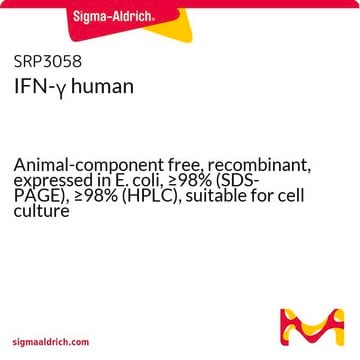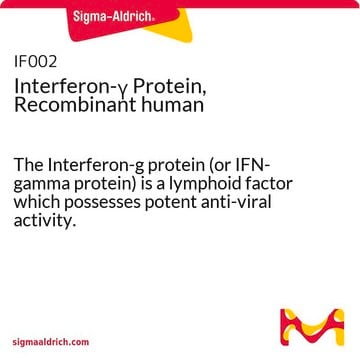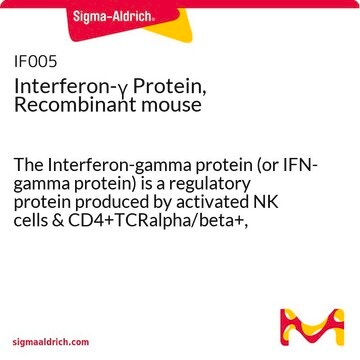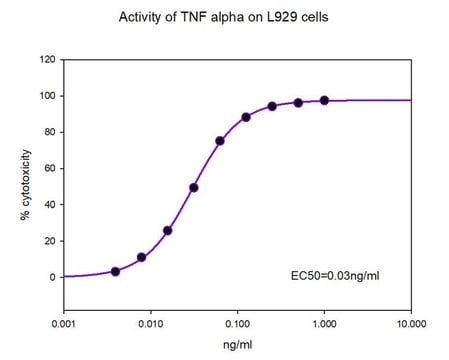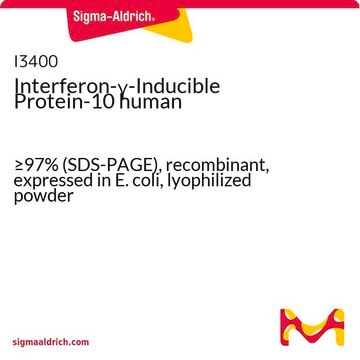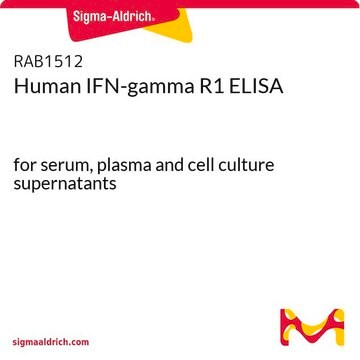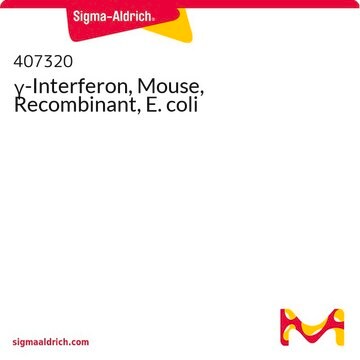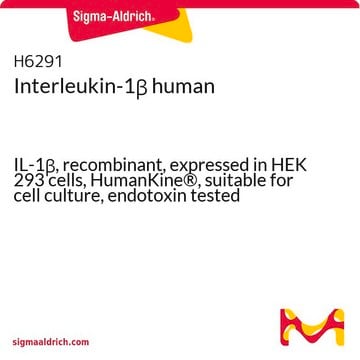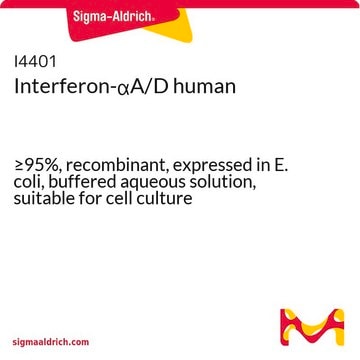I17001
Interferon-γ human
IFN-gamma, recombinant, expressed in HEK 293 cells, suitable for cell culture, endotoxin tested
Synonym(s):
IFN-γ
About This Item
Recommended Products
recombinant
expressed in HEK 293 cells
Quality Level
Assay
≥98% (SDS-PAGE)
form
lyophilized powder
potency
≤0.250 ng/mL In Viral Resistance Assay ED50
mol wt
16 kDa (glycosylated)
technique(s)
cell culture | mammalian: suitable
suitability
endotoxin tested
storage temp.
−20°C
Looking for similar products? Visit Product Comparison Guide
General description
Application
Biochem/physiol Actions
Interferon-γ (IFN-γ) plays an essential role in function of virtually all immune cells and both innate and adaptive immune responses. IFN-γ exhibits various biological effects, such as antiviral activity, inhibition of cell or tumor growth and promotion of terminal differentiation of B cells into immunoglobulin-producing cells. This cytokine also activates macrophages, increases cytotoxicity of natural killer cells and promotes T cell cytotoxicity. In addition to antiviral activity, recombinant human IFN-γ is a potent modulator of immune responses and modifies cellular processes.
Sequence
Physical form
Analysis Note
Storage Class Code
11 - Combustible Solids
WGK
WGK 2
Flash Point(F)
Not applicable
Flash Point(C)
Not applicable
Certificates of Analysis (COA)
Search for Certificates of Analysis (COA) by entering the products Lot/Batch Number. Lot and Batch Numbers can be found on a product’s label following the words ‘Lot’ or ‘Batch’.
Already Own This Product?
Find documentation for the products that you have recently purchased in the Document Library.
Customers Also Viewed
Our team of scientists has experience in all areas of research including Life Science, Material Science, Chemical Synthesis, Chromatography, Analytical and many others.
Contact Technical Service